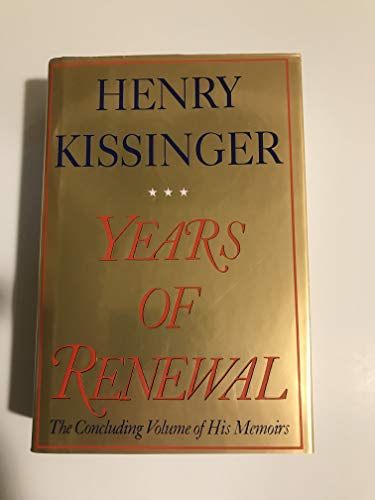Synopsis:
A third and final volume in the best-selling memoirs of one of the century's most influential political thinkers begins with Nixon's resignation and discusses his "shuttle" diplomacy in the Mideast, offering clear-eyed portrayals of figures such as Mao and Brezhnev. 150,000 first printing. Tour.
Review:
There is an old joke that Henry Kissinger is so full of himself he once wrote a book called Famous People Who Have Met Me. That strong sense of self is on full display in this third volume of memoirs (the other two are White House Years and Years of Upheaval). Kissinger, a national security advisor and secretary of state in the Nixon and Ford administrations, is a foreign-policy maestro fond of describing the difficult subtleties of his job. He is also, at times, generous with his praise--especially with this whopper: "I am certain the time will come when it is recognized that the Cold War could not have been won had not Gerald Ford, at a tragic point of America's history, been there to keep us from losing it." Years of Renewal begins during Nixon's final days, and provides a few key insights into the man Kissinger calls "perhaps [the] most complex President of the twentieth century." One eye opener is the revelation that Nixon ordered the bombing of the Damascus airport in 1969 during a hijacking incident "to impress his pals." (It was called off the next morning.) The bulk of the book (and bulk is the right word--there are nearly 1,100 pages of text before the footnotes) focuses on Ford, who comes across as much more statesmanlike than the popular image of him as a bungling caretaker. The portraits of contemporary world leaders are also valuable. Kissinger combines detail and clarity to deliver an important chronicle of American diplomacy during the 1970s. --John Miller
"About this title" may belong to another edition of this title.
![]()
